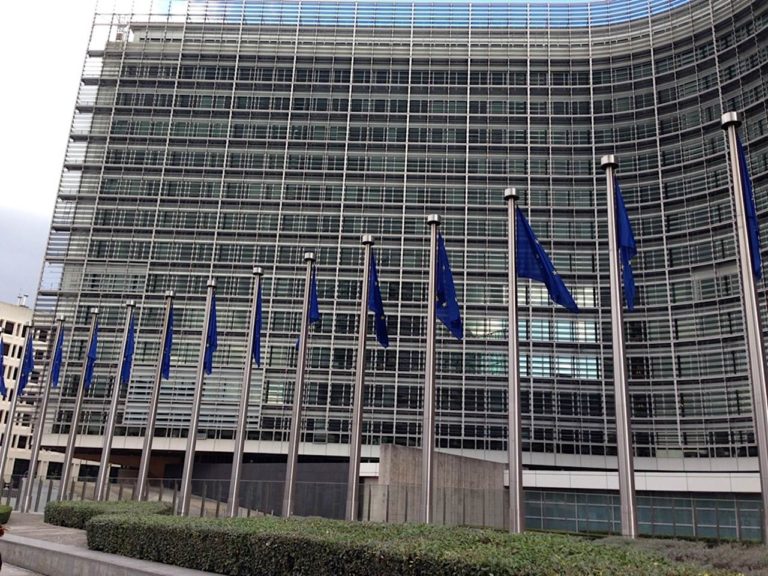Highlights from the Past Weeks
CW 10 / Monday, 6 to Thursday, 9 March: Political Group and Committee Meeting Week (Brussels);
ARTIFICIAL INTELLIGENCE – PARLIAMENT MOVES TOWARDS OECD DEFINITION: Like the Council, the Parliament’s negotiators are narrowing the Commission’s proposed definition (PDF) of an AI system. According to the definition, it is a “a machine-based system that is designed to operate with varying levels of autonomy and that can, for explicit or implicit objectives, generate output such as predictions, recommendations, or decisions influencing physical or virtual environments” (see Euractiv). Annex I of the Commission proposal, which lists specific AI techniques such as machine learning, logic, knowledge or statistics, is to be deleted (Articles 4a to 4e and Article XX – PDF).
Meanwhile, the co-rapporteurs have abandoned the idea of a political meeting in mid-March and have instead scheduled further technical meetings. This is to avoid repeating the mistakes of 15 February, when only half of the agenda was worked through at the last political meeting.
The co-rapporteurs are still working on proposals for AI systems for general use, such as generative ChatGPT-type AI. Depending on progress, another political meeting could then be scheduled for late March to early April (see Contexte, paywall, FR).
AI LIABILITY – LEGAL TIMETABLE AND STATUS IN COUNCIL: The Legal Affairs Committee of the European Parliament (JURI) has published the provisional timetable for its work on this dossier. According to the report, MEPs will hold their next exchange of views on the proposed AI Liability Directive on 24 or 25 April. The rapporteur, A. Voss (EPP, DE), is then expected to prepare the draft report on the dossier for consideration by the Committee on 3 July 2023. The deadline for amendments would then be 14 July 2023, and a discussion is expected to take place on 7 September 2023. The vote could take place in committee on 7 December and in plenary on 11-14 December 2023.
In preparation for last week’s Justice and Home Affairs Council, the Swedish Presidency distributed an information document (PDF) to Member State delegations. The document provides an overview of the status of work on several current legislative proposals and includes information on the proposed AI Liability Directive.
In particular, the document indicated that technical work on the dossier in the Council Working Party on Civil Law (Civil Liability) would be temporarily suspended and “resumed at a later stage following the progress of the negotiations on the closely linked AI Act”.
In the meantime, Council experts will focus on the related proposal for the revision of Council Directive 85/374/EEC (the Product Liability Directive).
ENERGY EFFICIENCY – COUNCIL AND PARLIAMENT REACH AGREEMENT ON EED: Parliament and Council negotiators agreed last week on new rules to promote energy savings.
The Energy Efficiency Directive sets targets for the year 2030. This includes, among others, the reduction of primary and final energy consumption by 11.7 % at EU level. The new legislation is intended to help combat climate change and increase energy security.
The provisional agreement must now be approved by both the Parliament and the Council (see EP press release).
DATA ACT – AWAITING THE TRILOGUE: The European Parliament will approve the Data Act report in Strasbourg. Big surprises are not to be expected.
In the Council, no agreement has yet been reached. Perhaps the sixth attempt, this week, will be successful. In the latest proposal (PDF), Articles 4(3a) and 5(8a) were added to allow manufacturers to refuse a request “in exceptional circumstances”, while the term “serious damage” was further clarified in recital 28a (see Politico Pro, paywall).
If an agreement is reached, the ambassadors could give their OK on 22 March and the trilogue negotiations could start soon. Negotiators were aiming for a deal by June (see Euractiv, EN).
CSAM – COUNCIL WITH ADJUSTMENTS TO THE DSA: In its compromise proposal of 8 March (PDF), the Swedish Council Presidency merges Articles 27 to 30 of the Regulation on Combating Sexual Abuse of Minors (“CSAM”) in order to align their wording with that of the DSA.
An important difference: While the DSA grants numerous investigative powers to the national coordinating authorities, the CSAM Regulation assigns these to the coordinator of the Regulation together with the other competent authorities. In case of imminent danger to a child, the hosting or messenger service must report content “immediately and directly” to the investigating authorities. If the service cannot identify the Member State concerned, the notification must go to the country of establishment or to Europol. In parallel, the right to prosecute a service provider for a breach of the Regulation is extended to consumer protection associations. In addition, the maximum limits for fines become fixed amounts. The maximum amount of fines for infringements is set at 6% of worldwide turnover. Similarly, the one for recurrent sanctions is to be 5%. This compromise proposal is on the agenda of the Working Group on Law Enforcement on 16 March (see Contexte, paywall, FR).
FREEDOM OF THE MEDIA – 48-HOUR GRACE PERIOD FOR PLATFORMS: In his draft opinion (PDF), the rapporteur for the Committee on Internal Market and Consumer Protection (LIBE) largely rewrites Article 17 of the Media Freedom Regulation (EMFA), which concerns the moderation of media content by platforms (including search engines).
- Geoffrey wants to give media 48 hours to react before their content may be restricted, removed, downgraded or labelled (e.g. as misleading or dangerous) by a platform. To “co-regulatory or self-regulatory mechanisms”, he adds supervision by an audiovisual regulatory body or a press council, as well as the appointment of a professional media by its country of establishment. His report is due to be published in mid-March and will be discussed in the Internal Market Committee on 27 and 28 March. The Committee is working on this with the Culture Committee (see Contexte, paywall, FR).
INFRASTRUCTURE LEVY – COMPETITION POLICY REPORT SEES AMENDMENTS: The discussion about what exactly is a “fair share” does not stop at the annual Competition Policy Report 2022. Numerous amendments (PDF) by MEPs from political groups such as the EPP, S&D and Renew also include the issue in the corresponding report in the Committee on Economic and Monetary Affairs (ECON) (e.g. amendments 139, 216, 226, 242 and 243).
A discussion at ECON is planned for 20 March. The adoption of the ECON report is scheduled for 24 April.
AUDIOVISUAL MEDIA – REPORT ON AVMS IMPLEMENTATION: Some MEPs of the Culture Committee in the European Parliament met last week for the third and last shadow rapporteur meeting for their report on the implementation of the Audiovisual Media Services Directive. The report is to be voted on at the end of the month. The members of the Internal Market Committee had already voted on their opinion (PDF) in the previous week (EP Legislative Observatory).
GERMANY – COPYRIGHT LEVY FOR PRIVATE COPIES IN CLOUD SERVICES: The Central Organisation for Private Copying Rights (ZPÜ) in Munich represents nine collecting societies for the administration of copyrights. Numerous cloud services were recently requested by the ZPÜ to provide detailed information on the volume of business with private and commercial customers in the period from 1 January 2019 to 31 December 2021.
Among other things, the ZPÜ demands data from providers on the number of “clouds put into circulation”, the number of registered users, storage capacities, and their prices. At the same time, the ZPÜ threatened the recipients of the letter with the initiation of “necessary measures” after the unsuccessful expiry of the deadline.
The ZPÜ also wants to assert remuneration claims of rights holders for private copies against cloud providers, referring to a ruling of the European Court of Justice on Austro Mechana (C-433/20) (see Golem, DE; ZPÜ).
FRANCE – PROPOSED LEGISLATION ON THE RISK OF EXCESSIVE SCREEN USE: The French MPs completed their examination of the bill last week. The text requiring manufacturers of terminal equipment (phones, computers, tablets) to put a warning on the packaging about the risks of excessive use of screens has been extended to televisions. The modalities of this measure shall be specified by decree.
In addition, MPs adopted an amendment providing for a scientific assessment of content touted as educational, in particular commercial software for children under 6. On the basis of this assessment, a government report to parliament will propose criteria that will allow the creation of a certifying label (see Contexte, paywall, FR).
Relevant Publications, including from the EP Think Tank:
- Industrial policy, State aid and clean tech [What Think Tanks are thinking] (Briefing)
- Securing Europe’s supply of critical raw materials: The material nature of the EU’s strategic goals (Briefing)
- Parliament’s position on the Data Act (At a Glance)
- Energy Performance of Buildings Directive (At a Glance)
- Opinion on the implementation of the Audiovisual Media Services Directive – Marc Angel, IMCO
- Information from the (Swedish Council) Presidency on Current Legislative Proposals
Selected consultations of the EU Commission
- Further clarification of the procedural rules for the enforcement of the General Data Protection Regulation – Call for Evidence: 24 February – 24 March 2023
- The future of the electronic communications sector and its infrastructure – Consultation: 23 February – 19 March 2023
- Digital Services Act – Implementing Regulation – Feedback on IR: 16 February – 16 March 2023
- Strategic Foresight 2023 – Call for Evidence: 13 February – 13 March 2023
- New product priorities in Ecodesign for Sustainable Products – Call for Evidence: 31 January to 12 May 2023
- VAT in the digital age – Feedback on the ordinance: 8 January 2022 until 4 April 2023
Outlook for the Current Week
Here you will find a list of the upcoming dates of the European Parliament and an overview of the coming plenary session week. On Tuesday, there will be, among other things, a debate and then the vote on the Data Act. The meeting calendar for 2023 is available here (PDF).
You can find an overview of the most important dates of the week of the Council here or the meeting calendar here.
The official calendar as well as the programme of the Swedish Presidency can be found on the corresponding website.
Among the dates are:
Summits and Ministerial Meetings:
- Employment, Social Policy, Health and Consumer Affairs Council, Monday, 13, and Tuesday, 14 March – Agenda, A Items, Background Brief;
- ECOFIN Council, Tuesday, 14 March – Agenda, A Items, A Item Addendum 1;
- Environment Council, Thursday, 16 March – Agenda;
- Foreign Affairs Council, Sunday, 19, and Monday, 20 March – Agenda;
Preparatory Bodies:
- Working Party on Telecommunications and Information Society (including GIA, Data Act), Monday, 13 March (Agenda);
- Working Party on Competitiveness and Growth (Internal Market) (including Ecodesign, SMEI), Tuesday, 14 March (Agenda), Friday, 17 March (Agenda);
- Working Party on Audiovisual Sector and Media (including EMFA), Tuesday, 14 March (Agenda);
- Working Party on Tax Questions (indirect taxation), Wednesday, 15 March (Agenda);
- Horizontal Working Party on Cyber Issues, Wednesday, 15 March and Friday, 17 March;
- Working Party on Law Enforcement (Police) (including CSAM), Thursday, 16 March (Agenda);
- Working Party on Competitiveness and Growth (Industry), Thursday, 16 March;
- Coreper I (including Chips Act), Wednesday, 15 and Friday, 17 March;
- Coreper II, Wednesday, 15 and Friday, 17 March;
Information about the weekly Commission meeting can be found on the website of the Commission in the preview (PDF) or (at short notice) in the current agenda. The recommendation on piracy in online live sporting events is expected on 26 April.
The following topics are on the agenda for this week:
- Net Zero Industry Act
- European critical raw materials act
The judicial calendar of the ECJ can be found here.
European Parliament Committees
CW 11 / Monday, 13 to Thursday, 16 March: Plenary Session Week (Strasbourg);
LIBE Committee (Civil Liberties)
Current Meetings
- none
Further Meetings (calendar)
- Wednesday, 22 March, 9.00-12.30 and 14.30-18.30 (Brussels)
- Thursday, 23 March, 9.00-12.30 (Brussels)
JURI Committee (Legal)
Current Meetings
- none
Further Meetings (calendar)
- Monday, 20 March, 15.00-18.30 (Brussels)
- Tuesday, 21 March, 9.00-12.30 and 14.30-18.30 (Brussels)
Dossiers Timetable (8 March 2023)
ITRE Committee (Industry)
Current Meetings
- none
Further Meetings (calendar)
- Monday, 27 March, 15.00-18.30 (Brussels)
- Tuesday, 28 March, 9.00-12.30 and 14.30-18.30 (Brussels)
Dossiers Timetable (9 March 2023)
IMCO Committee (Single Market)
Current Meetings
- none
Further Meetings (calendar)
- Monday, 27 March, 15.00-18.30 (Brussels)
- Tuesday, 28 March, 9.00-12.30 and 14.30-18.30 (Brussels)
Dossiers Timetable (March 2023)
CULT Committee (Culture)
Current Meetings
- none
Further Meetings (calendar)
- Monday, 27 March, 14.30-18.30 (Brussels)
- Tuesday, 28 March, 9.00-12.30 and 14.30-18.30 (Brussels)
PEGA Committee (Pegasus Investigation Committee)
Current Meetings
- Thursday, 16 March, 9.00-12.00 (Strasbourg)
Extract from the provisional agenda
…
- Hearing on “Geopolitics of Spyware II”
- Hearing on “Spyware and telecommunication companies”
…
Further Meetings
- Tuesday, 28 March, 9.00-12.30 and 15.00-18.30 (Brussels)
INGE2 Committee (Special Committee on Foreign Interference)
Current Meetings
- none
Further Meetings (calendar)
- Tuesday, 21 March, 9.00-12.30 (Brussels)
Further Parliamentary Calendar Dates
- CW 12 / Monday, 20 to Thursday, 23 March: Committee Meetings Week (Brussels);
- CW 13 / Monday, 27 to Thursday, 30 March: Mini-Plenary Session Week (Brussels);
- CW 14 / Monday, 3 to Thursday




